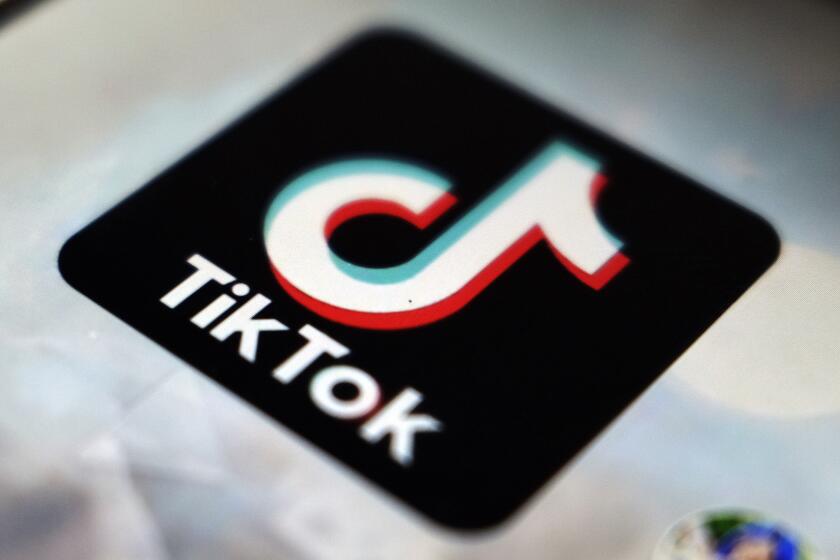Activists Target Political Gifts
In an election-year burst of activism, shareholders have targeted dozens of companies with resolutions urging that they provide enhanced, easily accessible details of all their political donations.
The appeals, aimed at a broad cross-section of corporate America, have hit a responsive chord with some investors and may be gaining momentum. At its annual meeting last week, pharmaceutical giant Pfizer Inc. said it would post a detailed report of its political activities on its website annually in response to the shareholders’ call.
“The fact that it got Pfizer to change its policy and announce that at the annual meeting -- that was a major victory,” said Caroline Williams, chief financial and investment officer at the Nathan Cummings Foundation, a nonprofit that describes itself as promoting social and economic justice. The foundation sponsored the Pfizer resolution, and Williams said she looked forward to using Pfizer’s announcement as leverage this week when a similar proposal is made at the Merck & Co. annual meeting.
A growing number of shareholder activists say it is simply too hard to follow the political money. Many of their proposals call for companies to post contribution data on their corporate websites -- and to explain why the money was given, something that isn’t required by campaign disclosure rules.
Recent financial scandals, they point out, underscore the value of openness.
“We’re not saying companies shouldn’t make contributions,” said John Richardson, co-director of the recently formed Center for Political Accountability, which drafted more than 25 resolutions for a group of pension funds. “That’s the nature of the American political system. What we are saying is that there’s a need for disclosure and openness about what they do.”
In the boisterous arena of shareholder democracy, that view is being put to the test. Activist investors are promoting about 50 such proposals in the current season of annual meetings, up from just a few in past years, according to the Investor Responsibility Research Center, which is monitoring the trend.
Although none of the proposals have come close to winning a majority, the initial results seem to ensure that the debate will echo in the future. Early returns have ranged from almost 10% at Union Pacific Corp., the Omaha-based railroad company, to about 11% at drug maker Pfizer and 14.5% at Morgan Stanley, the financial services firm.
Under Securities and Exchange Commission rules, a resolution that gets at least 3% in its first try may be automatically reintroduced the next year.
Despite widespread corporate opposition, the push “has some staying power,” said Meg Voorhes, director of social issues at the Investor Responsibility Research Center. She suggested several reasons: “There’s a presidential campaign going on. There are concerns about money in politics. And I think we’re still having some fallout from the corporate scandals.”
The effort is being spearheaded by union pension funds, socially conscious investment funds and other groups typically associated with left-leaning causes. The corporate donors they target often are conservative and are actively involved in political finance.
Proponents of added disclosure say the push isn’t about partisan politics but is a logical step in the quest for greater corporate accountability. They say targeted companies were selected in part because they represented a range of industries, and not because of their politics.
For their part, some companies contend that the information is already readily available through state and federal agencies. Requiring companies to post information on their websites, they say, would be yet another regulatory burden.
“We have enacted or are enacting more rules and regulations on corporate governance in a two-year period than this nation has probably put in place in 50 years -- none of which has been fully digested,” said R. Bruce Josten, executive vice president of government affairs at the U.S. Chamber of Commerce.
Currently, a shareholder who wishes to monitor a firm’s donations must comb through federal election records or watchdog websites as well as assorted state election records, activists maintain. And after all that, they say, shareholders may still not know why the contribution was made.
Enhanced, detailed publicity about a firm’s donations, they say, would help ensure that the contributions stay consistent with shareholder desires and the company’s strategic aims.
“It’s the embarrassment factor that we want to avoid,” said Steve Abrecht, executive director of the $1.4-billion SEIU Master Trust, which encompasses three pension funds for the Service Employees International Union and employers. The trust is sponsoring resolutions at General Electric Co., American Express Co., J.P. Morgan Chase & Co. and eight other companies in which it has investments.
“It doesn’t take much in this day and age for an event to happen that has a ripple effect.... We want to make sure companies are paying attention to this area as much as possible,” Abrecht said.
One area of concern is the gift of corporate money to political organizations that then make donations to other groups. Consider the case of Union Pacific.
In 2001 and 2002, the railroad donated more than $1 million from its own coffers to federal and state organizations and candidates, according to company officials and public records. Most of it went to Republicans, according to analysis by the Center for Political Accountability.
The donations included $75,000 to Americans for a Republican Majority, a fundraising operation of House Speaker Tom DeLay (R-Texas). That political committee made various contributions of its own, including $7,000 to the Traditional Values Coalition, a socially conservative group that opposes gay rights and abortion.
“Companies should be tracking where money that they give to organizations ultimately ends up,” said Bruce F. Freed, a former congressional staffer who last year launched the Center for Political Accountability with Richardson.
Kathryn Blackwell, a Union Pacific spokeswoman, said the company supported many of the goals of Americans for a Republican Majority, which is why it made the donations. She acknowledged that recipients of Union Pacific’s contributions might make donations to causes the railroad wouldn’t itself choose to fund.
“It is a risk that you take, and we realize that,” she said. “We make these decisions very carefully.”
Those demanding more political disclosure have also set their sights on particular industries. Pharmaceutical firms, for example, can be greatly affected by federal policies related to prescription drug benefits and other matters. Although that reality may give companies an incentive to write large checks, not all shareholders believe that is the right impulse.
“They should be competing in the marketplace,” said Daniel Rosan, program director for public health at the Interfaith Center on Corporate Responsibility, a coalition of activists that has called for enhanced political disclosures at Pfizer, Merck & Co. and Abbott Laboratories. “They shouldn’t be competing for politicians or for About 50 resolutions have been drafted for this season’s annual meetings calling for more detailed accounts of (firms’, if needed) donations, easier access to information or for political favors.”
In a similar vein, members of the interfaith coalition have endorsed resolutions for greater disclosure by media firms, including Chicago-based Tribune Co. (owner of the Los Angeles Times and KTLA-TV Channel 5) and Time Warner Inc.
The media resolutions declare: “We believe that our company should be using the resources to win in the marketplace through superior products and services to its customers, not because it has superior access to political leaders. Political power can change, leaving companies relying on this strategy vulnerable.”
Morgan Stanley was selected simply as a “high-profile company that contributes a lot of dollars,” said Barry McAnarney, executive director of the Central Laborers’ Pension Fund, which sponsored the resolution. Under the proposal, the firm would have to disclose details about contributions twice a year.
“What we want is a clear picture,” said McAnarney, whose fund serves Illinois construction workers. “If they’re spending the money, what is it for?”
According to the Center for Political Accountability, the investment firm donated more than $500,000 in the 2001-02 election cycle, the majority of which went to Republicans.
Whether most investors truly want the details isn’t clear. At Morgan Stanley, management warned that the proposed requirement would be “burdensome and intrusive,” and said most agreed.
“The majority of our shareholders agreed that the proposal would impose unnecessary expense and divert resources because the information we would have been required to produce every six months is already publicly available from a variety of other sources,” said Raymond O’Rourke, Morgan Stanley spokesman.
Beyond that, campaign finance law changes make it unclear whether some firms may retrench in their political spending or overhaul their strategies. Still, activists have taken heart in the early runs. The cause of disclosure, they say, has surmounted the initial hurdles and will soon take its place alongside global warming, executive pay and other staples of shareholder dissent. “These resolutions are going to be submitted annually,” Freed said. “They’re not going to go away. We’re here for the long haul.”






